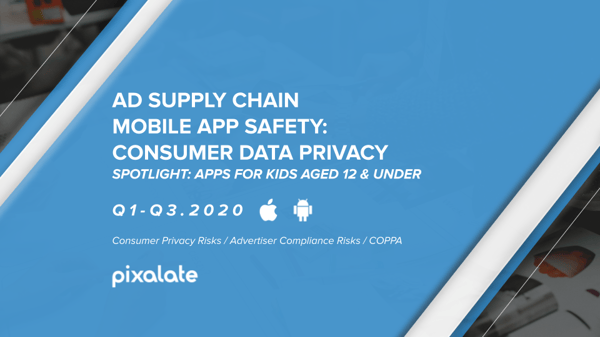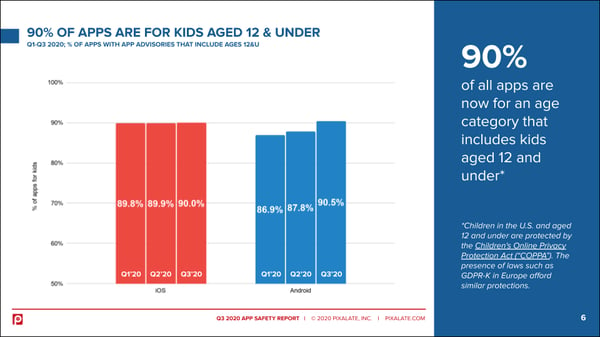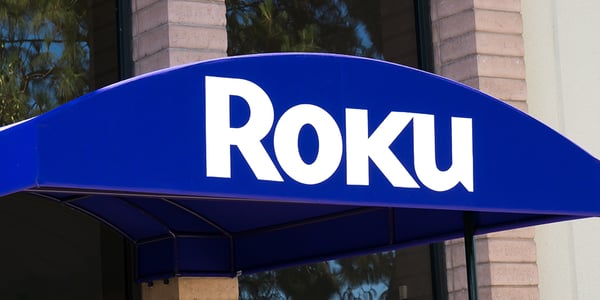
This week's review of ad fraud and quality in the digital advertising space.

Pixalate's Q3 2020 Mobile Ad Supply Chain App Safety Report reveals a15% rise in the number of apps for kids requesting sensitive user data, which highlights consumer privacy & advertising compliance risk factors.

Pixalate's Mobile Ad Supply Chain: App Safety & Consumer Data Privacy Report (Q3 2020) takes a specific look at apps for kids (aged 12 and under). This blog examines the percentage of apps across the Google and Apple app stores that count kids aged 12 and under as part of their target audience.

In a blog post, Roku this week announced it has added support for the IAB Tech Lab's app-ads.txt initiative. Roku writes that the support "further enables publishers on the Roku platform to safeguard the legitimacy of their ad inventory." Starting April 1, 2021, Roku will require ad-supported apps to "provide the URL path to an app-ads.txt file" (which can't be blank).

NPR this week reported that 10 states have sued Google regarding its presence in digital advertising. NPR wrote: "The lawsuit, filed in federal court in Texas, focused on Google's outsized role in the complicated chain that links advertisers to publishers selling space online. Google is the biggest player in every link of that chain, and the states allege it has abused that monopoly to boost its own business."

In this podcast, eMarketer discusses what to expect for mobile advertising in 2021. eMarketer estimates that mobile ad spend in the U.S. will reach $117.4 billion next year, down from the pre-pandemic 2021 estimate of $123.6 billion — but still an expected rise of 22% compared to 2020.
*By entering your email address and clicking Subscribe, you are agreeing to our Terms of Use and Privacy Policy.
These Stories on Weekly Recaps
*By entering your email address and clicking Subscribe, you are agreeing to our Terms of Use and Privacy Policy.

Disclaimer: The content of this page reflects Pixalate’s opinions with respect to the factors that Pixalate believes can be useful to the digital media industry. Any proprietary data shared is grounded in Pixalate’s proprietary technology and analytics, which Pixalate is continuously evaluating and updating. Any references to outside sources should not be construed as endorsements. Pixalate’s opinions are just that - opinion, not facts or guarantees.
Per the MRC, “'Fraud' is not intended to represent fraud as defined in various laws, statutes and ordinances or as conventionally used in U.S. Court or other legal proceedings, but rather a custom definition strictly for advertising measurement purposes. Also per the MRC, “‘Invalid Traffic’ is defined generally as traffic that does not meet certain ad serving quality or completeness criteria, or otherwise does not represent legitimate ad traffic that should be included in measurement counts. Among the reasons why ad traffic may be deemed invalid is it is a result of non-human traffic (spiders, bots, etc.), or activity designed to produce fraudulent traffic.”

